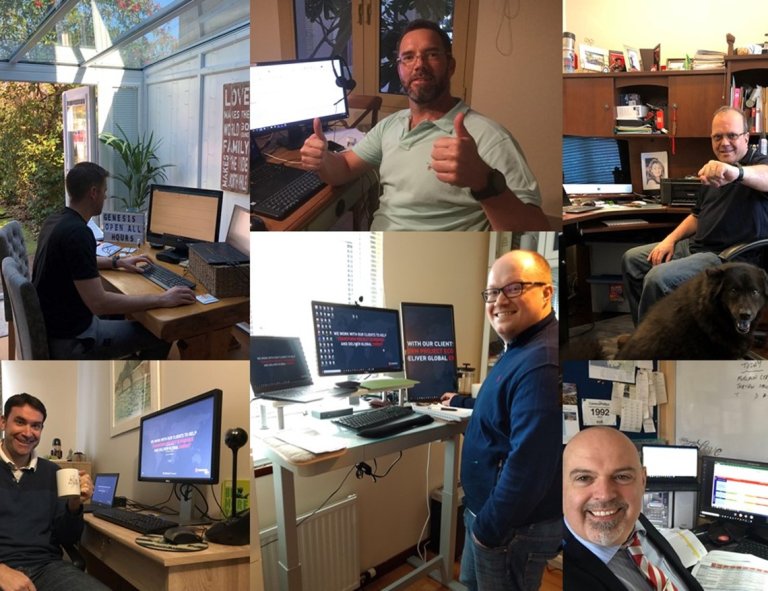CHALLENGE
In December 2019, a new version of coronavirus – COVID-19 – was discovered in Wuhan, China. COVID-19 was likened to SARS, Ebola and even the Spanish Flu in 1918, but for many it was the first outbreak in their living history. Within 3 months, this new disease was affecting practically every country in the world.
As the disease spread at an alarming rate, local governments, business and education institutions were forced to react very quickly. In response to the outbreak, key advice was being enforced - stay at home, practice social distancing, frequently wash hands, and self-quarantine for 14 days if symptomatic.
As many countries were put on lockdown to help slow the spread of the disease, many organisations had to react to keep their employees safe. At the same time, companies had to start to develop and execute their business continuity plans in order to continue to support their clients without compromising the safety of their staff or any other stakeholders.
OVERVIEW
Project type: Global Pandemic
Customer: Global Genesis
Location: Worldwide
UNDERSTANDING
Genesis has offices in 16 different locations around the world, from Perth, Australia to Houston, Texas. Our primary concern was the health, safety and wellbeing of our 1000+ global employees. Similarly, ensuring business continuity during this time is key to our survival. Making sure our people are safe but also continue to work on projects and tender new projects is paramount to our business.
Genesis has and continues to adjust its response to this global pandemic based on the advice of the respective governments where it operates.
SOLUTION
As COVID-19 rapidly became a global pandemic, Genesis’ first response was to set up regional and global Incident Management Teams (IMT). This ensured the autonomy of response locally with global support. These teams comprised of members of the regional leadership teams. The teams meet daily to assess the situation, review local and government advice, and act accordingly.
Based on the government advice, Genesis progressively moved to a situation where all of our employees were asked not to come to the office but work remotely from their homes. Because of our advanced IT systems many of our staff already had the relevant IT enabled systems to make this transition but we had never done this on this scale. Some of the challenges were:
- Identifying individual connection and software issues associated with access to our IT located in our offices. This was done by issuing an on-line survey to all our teams asking a number of simple questions to see where and the types of issues people were experiencing. This enabled our IT team to focus on the individuals who were most in need of help.
- Running complex software requires high speed data links
- Facilitating workshops with our clients which had to date only being carried out face to face.
- Ensuring we provided the right level of communication with our teams so that they did not feel isolated and still part of a global team
RESULTS
After 3 days of remote working we had fixed almost all the connectivity problems and 98% of our teams were able to access the office servers with no loss of efficiency. This rapid success was due to the level of investment we had made in our IT infrastructure as well as the training and support our teams had received to ensuring people could move seamlessly to remote working.
The survey we carried out identified some issues with individuals running some complex software applications and in all cases, we were able to resolve the issues and ensure people were working efficiently.
As part of our digital initiative we had developed a tool to enable workshops to be conducted and recorded digitally. This made it easy to transition to performing workshops remotely with both our team and our clients team collaborating on our platform. So far, we have conducted multiple workshops including HAZOPS and Option Identification Workshops with clients recognising that this way of collaborating could be really beneficial enabling greater participation of stakeholders.
At times like this when there is a great amount of uncertainty both in terms of people’s work and home life, it is important that people don’t become isolated. We have endeavoured to ensure we have the right balance between communicating regarding the business but also facilitating other activities such as team social chats and competitions for children who are being looked after by our staff. Our people remain our best asset.

Get in touch
If you require more information, please contact your local Genesis representative.
